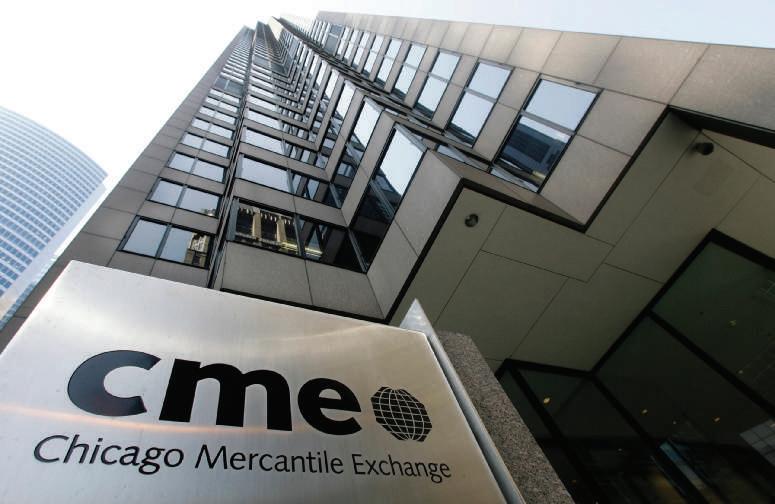
4 minute read
7-6a Foreign Corrupt Practices Act
jorisvo/Shutterstock.com
In recent years, the Foreign Corrupt Practices Act has been garnering more attention, and corporations are under increased scrutiny. Congress passed the Foreign Corrupt Practices Act (FCPA) in 1977 in response to corruption and bribery of foreign government officials by managers of U.S. companies. People might expect that an old law, such as the FCPA, would not have a large current impact upon U.S. companies, but recent events show otherwise. During the past five years both the SEC and the U.S. Department of Justice (DOJ) have increased their investigation and prosecution of companies and individuals for violation of the FCPA.
Advertisement
The Foreign Corrupt Practices Act consists of two parts: an anti-bribery provision and a requirement to maintain an adequate internal control system over financial books and records. With regard to bribery, the FCPA prohibits any U.S. firm, including any officer, director, or employee, from using “the mails or any means or instrumentality of interstate commerce corruptly in furtherance of an offer, payment, promise to pay, or authorization of the payment of any money, or offer, gift, promise to give, or authorization of the giving of anything of value to”:
Concepts of internal control have ancient origins, such as the Apostle Paul’s writing (1) a foreign official; about the dual custody of assets and how it protects an honest person from (2) a foreign political party;suspicion and false accusation. (3) an official of a foreign political party; (4) a candidate for foreign political office; or (5) any person who will in turn give the money or any item of value to one of the aforesaid individuals or entities for purposes of influencing a decision or act in order to assist in obtaining or retaining business or directing business to a person.
Foreign Corrupt Practices Act (FCPA)
a U.S. federal law that consists of two parts: an anti-bribery provision and a requirement to maintain an adequate internal control system over financial books and records Penalties for conviction of such acts include fines and imprisonment.
With regard to internal controls, the FCPA amended the Securities Exchange Act of 1934 by requiring public companies to devise and maintain a system of internal accounting control. This internal control must be sufficient to provide reasonable assurance for the following:
(1) that transactions are executed in accordance with management’s general or specific authorization; (2) that transactions are recorded as necessary to permit preparation of financial statements in conformity with generally accepted accounting principles or any other criteria applicable to such statements, and to maintain accountability for assets;
(3) that access to assets is permitted only in accordance with management’s general or specific authorization; and (4) that recorded accountability for assets is compared with the existing assets at reasonable intervals and appropriate action is taken with respect to any differences.
The intent of Congress was to use the internal control provisions of the law to strengthen the anti-bribery provisions. Yet, the internal control provisions are not limited to the detection or prevention of foreign bribery, and they affect all public companies whether or not they are involved in international trade.
A few people complain that the FCPA puts American firms at a disadvantage against non-U.S. competitors. This complaint misses the point. If bribery is wrong, then bribes should not be given. If succeeding in business required unethical behavior, then not to “succeed” is better. Of course, genuine success is not based upon profits but upon being a person of character, a person who does what is right regardless of the consequences. The argument to do whatever it takes to win is a premise that leads corporate managers to use questionable accounting practices and sometimes to commit fraud to maintain impressive financial statements. While this unethical strategy may increase stock prices in the short term, the truth ultimately will be discovered.
As the FCPA is a U.S.-based law, it is enforced on U.S.-based companies and therefore does not apply to foreign companies that fall outside the statute definition. The law does apply, however, to any entity that is an issuer under the U.S. securities laws, any foreign entity with subsidiaries in the United States and any act in furtherance of a bribe occurring in the United States. While more than 30 countries have enacted laws comparable to the FCPA, many are not as aggressively enforced and the provisions of the statutes do not have the substance of the FCPA.
Corporate financial scandals occurring in the early 2000s have led to new regulatory measures, including the especially significant Sarbanes–Oxley Act, often referred to as “SOX,” which was enacted in 2002. Investors had lost billions of dollars due to scandals at companies such as Enron, WorldCom, Tyco International, Adelphia, and Global Crossing. As a result, investors had lost confidence in the reliability of the securities markets. After all, why would people purchase stock in a publicly traded corporation if the financial information is unreliable?
SOX established new and more rigorous standards for corporate boards of directors, corporate management, and public accounting firms. SOX increased the potential prison
Images of Roman Goddess, Justitia, are often seen in courtrooms and courthouses. Justitia usually carries scales in one hand, which measures the strength of opposing sides of a case, and a sword in the other hand, which represents the power of reason and justice.







